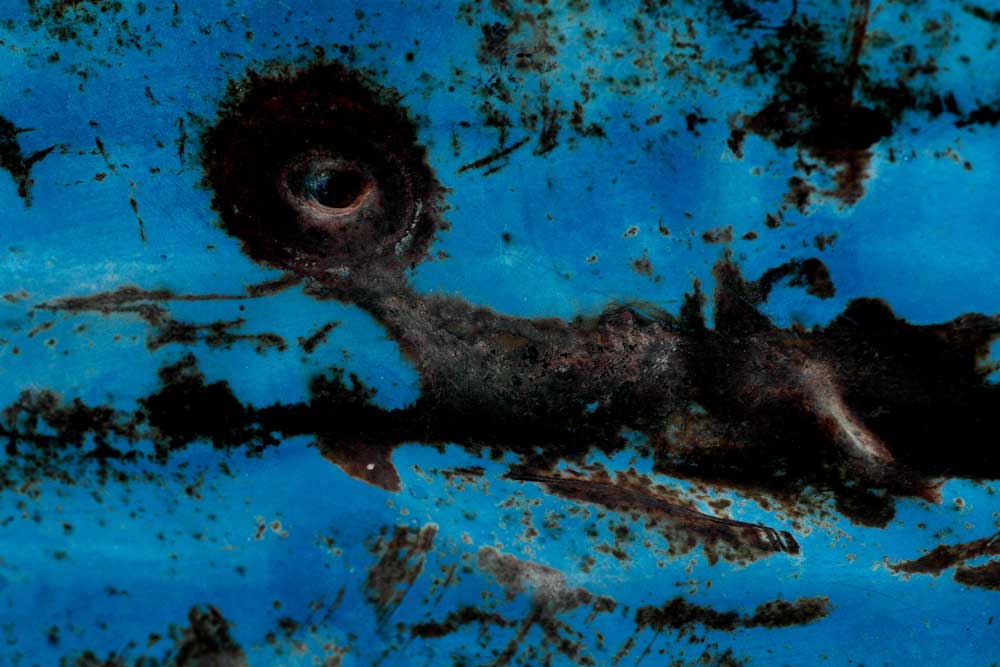Task 17 – Follow your intuition
Task 17
Follow your gut feeling

Nkob, Morocco, 2013. Photo: Reidun Elisabeth Tvete Bjørhusdal
Problem
Ignoring your gut feeling
When I began my career as a doctor, my intuition in regard to my patients was underde- veloped. I had to examine them from head to toe and learn what was normal and not normal. I had to consult the textbooks to find what symptoms to look for. I had to make mistakes and learn from them.
My intuition had to be developed. It wasn’t until I had seen thousands of patients that I was able to assess the degree of seriousness in each of their cases. Now my intuition is my primary tool at my office. I learn something each time my intuition is correct, and even more when it fails. My medical gut feeling is therefore under continuous development.
A gut feeling is an intuitive, immediate assessment of people and situations, an emotional snapshot based on thousands of experiences and encounters with people. The feeling sits in our stomach. It starts to operate already in our infancy where being full means things are fantastic and hunger is terrible. Both scary experiences and pleasant encounters have left their mark in our intuition and have contributed to us having a quickly accessible notion of the current situation. When you are standing in front of a new person or a situation, your subcon-scious functions as an effective search engine, looking for similar experiences, and then passes on the wordless gut feeling.
Your intuition is unique. It is a result of precisely your experiences and reactions during your life. Your rational way of thinking, on the other hand, is to a greater degree formed by your schooling, the society you grow up in and the mass media.
My experience is that I make better decisions when I follow the gut reaction. It tells me quickly what I should choose to do, long before the rational part of my does. Even if I have a good impression of a person in my head, my gut may disagree. Our gut feeling is based on emotional memories that we have from meetings with people we have had through life. The person who told us lies when we were 10 can be long forgotten, the traces of the encounter with him or her have not been erased.
The connection between the brain and the stomach is much more important than we were previously aware of. For example, there are many more signals that travel on the important vagus nerve from our stomach to our brain than go in the opposite direction. And 90% of the mood hormone serotonin is produced in the intestines.
Can you remember any of the times when your gut feeling warned you, or when it tipped you off about a good opportunity?
On a scale of 1 to 6, how relevant is this issue for you?:
Solution
Listen to your intuition
Your photographic intuition is based on memories about what you like to see. Therefore, no one starts completely from scratch as a photographer. Your visual experience is extensive and when you are able to express this, it is like your soul becomes visible in your pictures.
I can understand immediately, after having seen thousands and thousands of pictures in the context of teaching, when a photo must have been taken by one’s intuition. Most often, the photographer underestimates the picture, often by thinking that it was so obvious that the picture had to be taken and it was almost impossible to avoid taking it. The pictures that we strove to take, thought a lot about and put a lot of energy in at are, on the other hand, often overvalued and fiercely defended in the discussions. A picture can most easily be objec- tively assessed by someone who simply sees it without having invested any effort in it. It may be worth it to trust someone else’s set of eyes and listen if they say: ”Kill your darlings!” or «this is a gem».
Pictures are non-verbal communication. We see them and react to them intuitively, as if they have hit a wordless place in our brains. Just as a musician can struggle with explaining a hit song, it can feel almost impossible to explain what a good photograph is. Both the music and the picture were created from a place deep within and touch us on a deeper level.
It is important to be aware of that the intuition will not lead to any objective truth. It feeds on your experiences. It will, however, lead to your unique way of expressing yourself. And that is maybe the most important.
Do you have an academic background? If so, you are used to thinking and reasoning as a way of understanding and exploring things. This rational way of thinking can often be in the way for us when we take photos, therefore it may take some time before we get the hang of the creative use of our gut feeling. However, be patient!
Of course, it is not so that only pictures taken by intuition have any value. Often the intui- tive ones appear right after you have exerted yourself and constructed a picture. We need to employ both of these approaches.
PHOTO ASSIGNMENT:
Photograph whatever you want, but try to follow your gut feeling!
How useful was this task for you on a scale of 1 to 6?:
BOOK SUGGESTION: Finding Water by Julia Cameron
❞ Many people talk about our gut feeling as if it was something diffuse, irrational and inexplic- able. But it is nothing other than a feeling that comes from all of my previous experiences, all of the information that I possess and everything that I have learned.
Petter Stordalen
❞Intuition is recognizing our higher path; Creativity is what happens when we follow it.
Kim Chestney
❞Don’t let the noise of others’ opinions drown out your own inner voice. And most important, have the courage to follow your heart and intuition.
Steve Jobs
[note_editor]

